According to the Department of Education, a record 1,018,799 international students were enrolled in Australia in the year to September 2024:
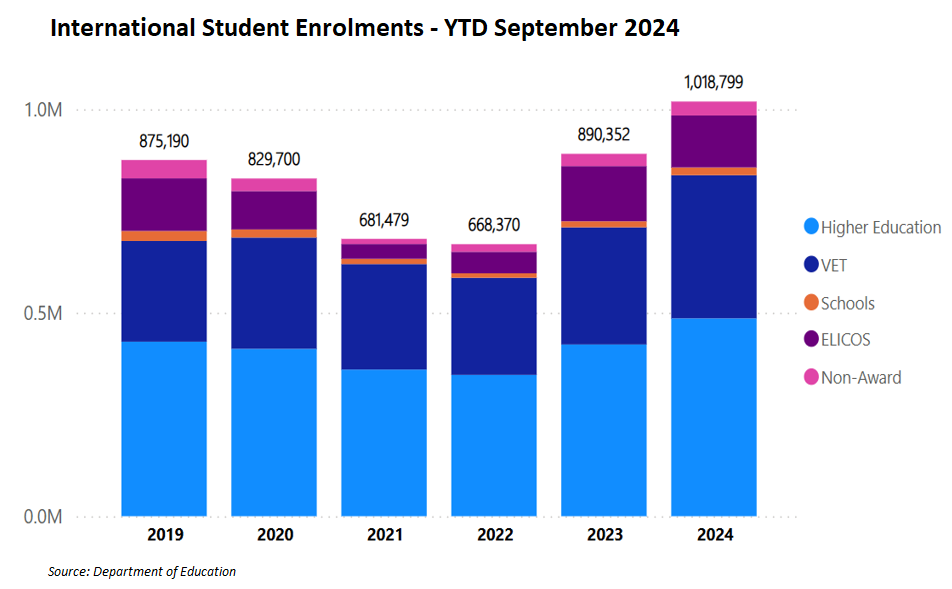
The table below displays the breakdown of enrolments by type of institution.
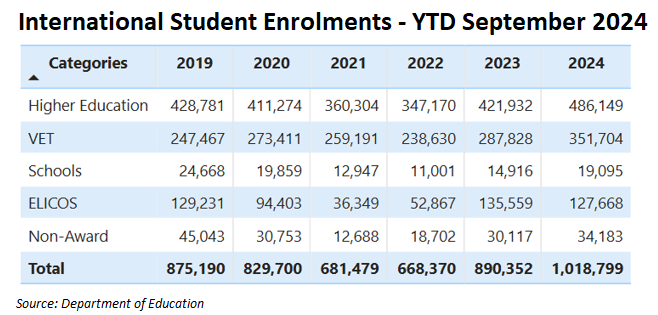
As you can see, vocational education and training (VET) has experienced the greatest increase in student numbers since 2019, rising from 247,467 to 351,704.
The Albanese government attempted to reduce net overseas migration by tightening rules around international student visas.
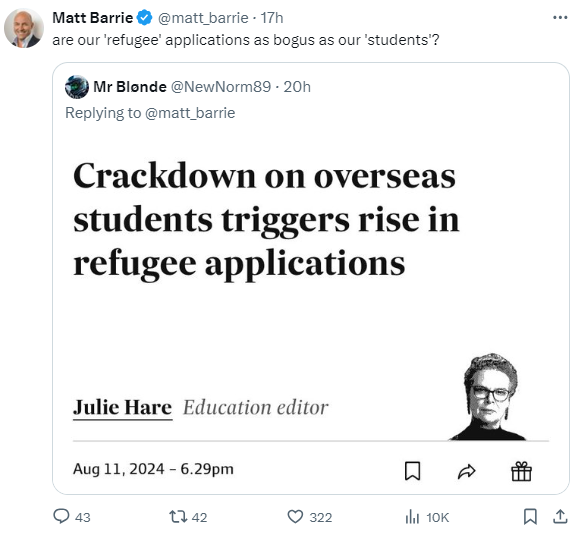
However, this was accompanied by a large volume of former students clogging up the Administrative Review Tribunal (ART) with spurious asylum seeker claims in a bid to extend their stays in Australia.
This is reflected by the sharp increase in bridging visas.
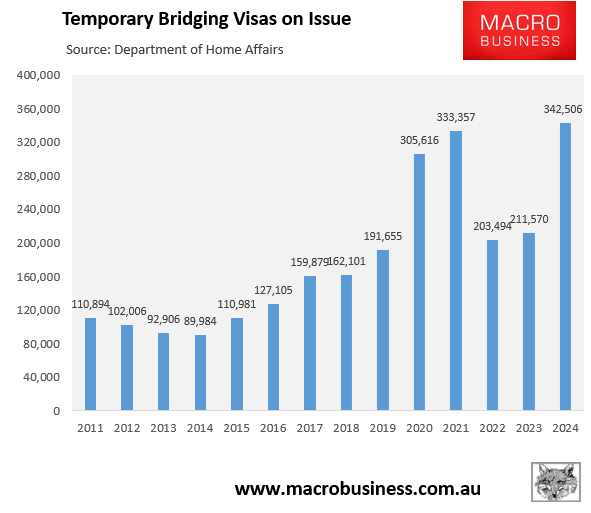
Last week, the ABC’s Adele Ferguson reported on the “dodgy operators, bogus qualifications and financial fraud” encompassing of Australia’s “shadowy” $7 billion a year private college sector”
Behind the slick websites and promises of a world-class education a shadow industry has thrived — one where colleges and migration and education agents have spent decades exploiting the system…
Some of them are criminal networks, others are less sophisticated shonks hoping to make a quick buck, selling fake qualifications from a few hundred dollars to tens of thousands of dollars per student….
“I found particular nationalities who exploit their own nationalities”, noted Christine Nixon, who authored the Rapid Review into the Exploitation of Australia’s Visa System in March 2023…
Quality College of Australia boss Richard Finlayson says the sector has had problems for decades. He estimates that one-third of private colleges do the right thing in terms of compliance, one-third are in the middle and the rest don’t care.
“They are set up with trust funds and the money ends up overseas,” Finlayson says…
ASQA told the ABC that, as of December 31, it was handling 174 serious matters including allegations of cash-for-qualifications schemes, fraud, fake diplomas, and fabricated assessments. These cases involve 138 training providers — and 103 of them cater to international students.
The scale of misconduct is staggering: 68 per cent of these serious matters involve fraud, from visa scams and funding rorts to sham RPL processes that falsely legitimize unearned qualifications. Some providers don’t deliver any actual training or assessment, while others run ghost colleges where students pay for a visa rather than an education.
“In addition to the 174 serious matters under investigation, ASQA has 84 compliance activities underway across both VET and CRICOS providers,” an ASQA spokesperson said.
Adele Ferguson noted that the Australian Skills Quality Authority (ASQA) has beefed up enforcement, cancelling the registrations of 51 private colleges in 2023-24—a 34% increase from the previous financial year. In the six months to 31 December 2024, another 28 private colleges were deregistered.
This is likely only the tip of the iceberg. There are around 3,800 registered training organisations in Australia, with plenty passing the low bar to be accredited.
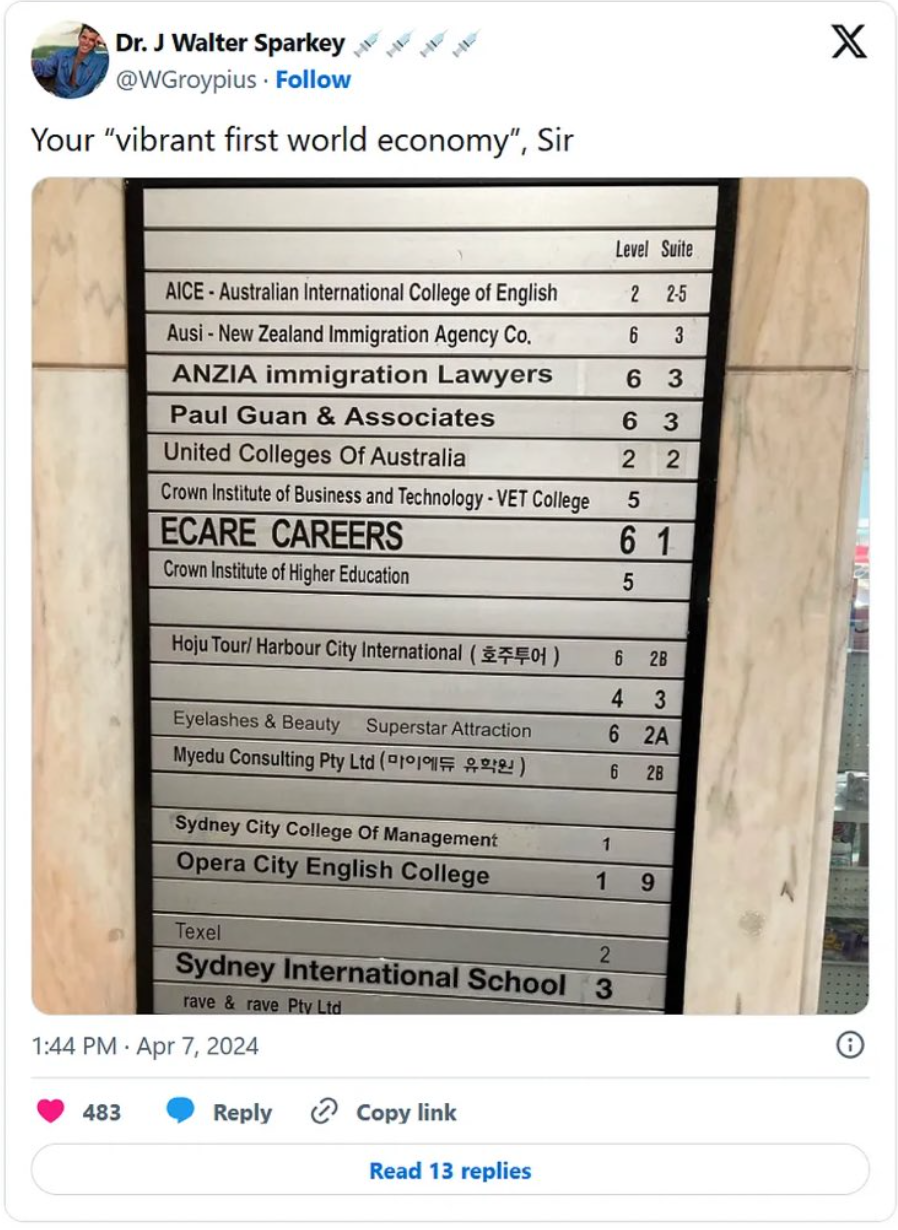
Matt Barrie was correct when he said that half of these providers should probably be stripped of their accreditation:
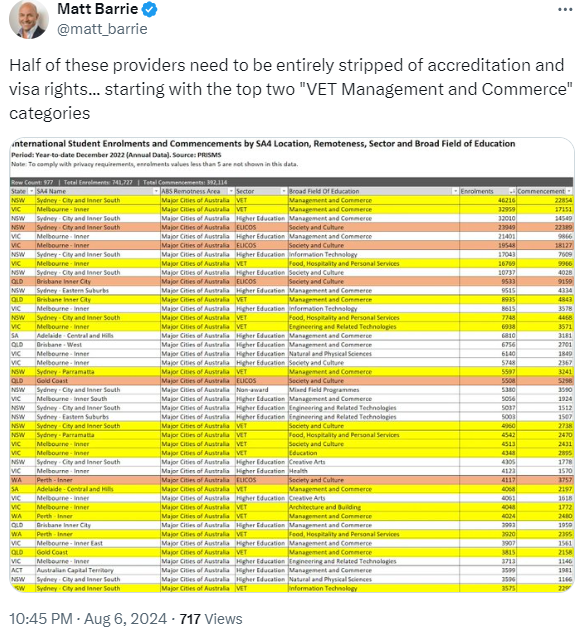
The misuse of Australia’s student visa system is so commonplace that it has become a feature, not a bug.
Here is Albo enjoying a curry with one Indian billionaire operating a banned college.
The entire system of student visas and private colleges must be reset, with all Mickey Mouse providers losing accreditation and visa applications rejected.
The federal government must also tighten the appeals procedure for visas and the ART to ensure that students return home when their visas expire or their applications for another visa are denied.
More broadly, Australia should aim for a far lower number of high-achieving students. The visa system must prioritise quality above quantity.

